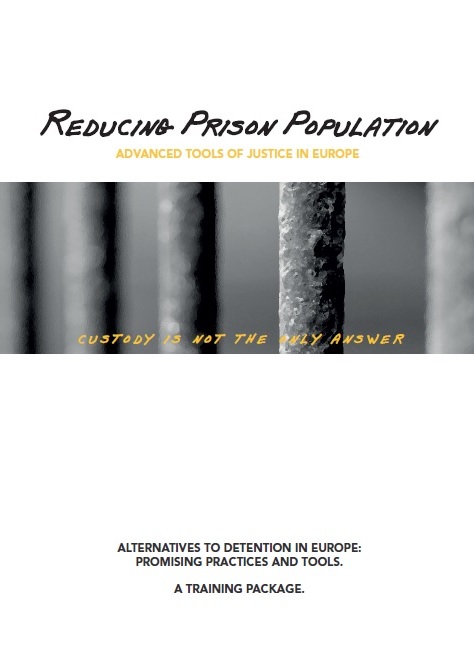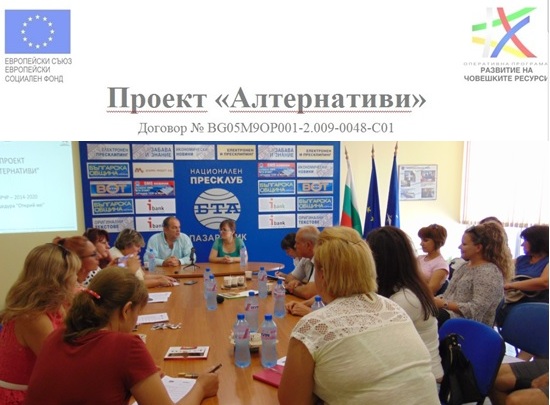Analytical report from all surveys
.jpg) After a series of conducted surveys in the Regional Probation Services on the territory of the country – focus groups, thorough interviews, and anonymous inquiry cards, the received information was summarized and analyzed in a report.
After a series of conducted surveys in the Regional Probation Services on the territory of the country – focus groups, thorough interviews, and anonymous inquiry cards, the received information was summarized and analyzed in a report. There is a system for training of probation workers despite the inadequate material and financial resources for its development. Besides trainings directly related to the activity of the probation workers, however, it is necessary to be organized also current courses for increasing the qualification which are not directly related to their activity but increase their organizational culture and motivate them to work with the separate offenders.
According to the majority of the inquired the work in the Probation Services should be done in a team. It should also be focused on work with a specific kind of people sentenced to probation, for example “people driving after alcohol consumption and without a certificate of offence”, “perpetrators of thefts” and “perpetrators of crimes including aggression”.
The interviewed heads in the probation system believe that it is better to be introduced standards for working with sentenced people and providing the Probation Services with a sufficient number of workers working on an individual case.
The interviewees have rarely taken part or have had no opportunities so far to take part in international trainings and seminars but would like to get to know in detail the existing successful probation models in Europe.
The participants believe that they have very good and excellent theoretical knowledge and practical skills but it is necessary to continue to develop and when there is an opportunity – to take part in additional trainings. These are the topics for further training: Managing the team in conditions of financial deficiency and limited rights; Limitations in free movement through electronic monitoring: work with high-risk offenders; Approaches and techniques for increasing the work motivation of workers. Organizational behavior and supervision. Human resources management; Topics related to the work with drug and alcohol addicts; Topics related to work in critical situations (such as professionals and individuals) and many others.
To a huge extent the results from the interviews with representatives of the leading personnel correspond to those from the inquiries among the workers. The results from the anonymous inquiry lead to the conclusion that at national level there is a lack of permanent training of workers in the probation services in the country which does not satisfy their needs to maintain good professional standards at work. There is a strong focus on the probation workers’ need for communication and exchange of experience among themselves with a view to equalize approaches for working and copying with specific cases from the practice.
In general the discussions in the focus groups are constructive. The following conclusions can me drawn: the initial training of the probation workers which is obligatory by law and implemented by the training centre in Pleven is useful but insufficient. Significant part of the probation workers who have taken part in the focus groups have done various additional qualification courses and trainings for increasing their professional qualification but it is apparent that all these are rather an outcome of their personal initiative and not a purposeful and systematic policy on behalf of Directorate General “Execution of Punishments”.
As a general conclusion the need for a thorough training and understanding of the European practices for jurisdiction and probation activity stands out. It is also clearly outlined the need for creating and developing a system for a long-term training and qualification of the probation workers which is characterized by regularity, good thematic structure, and adequacy of their needs and necessities.
The majority of the inquired believe that the trainers should be professionals with experience in the probation sphere with preference for psychologists, criminologists, and therapeutists.










